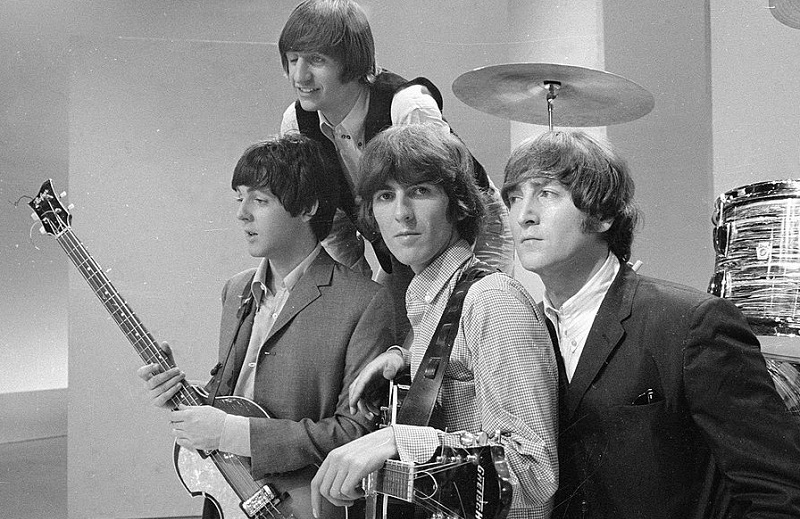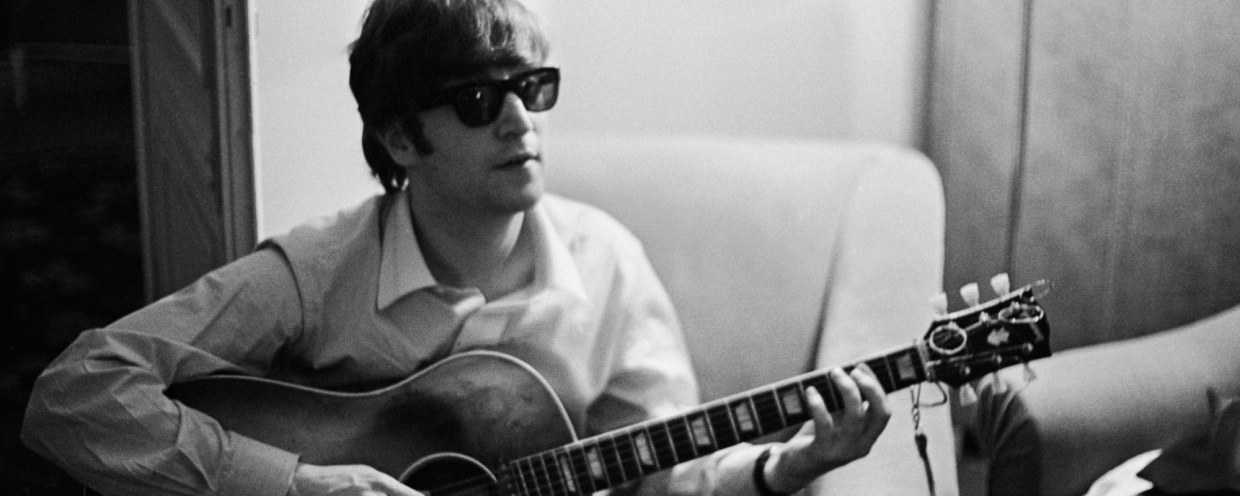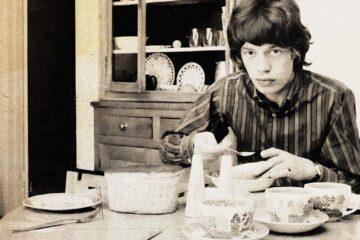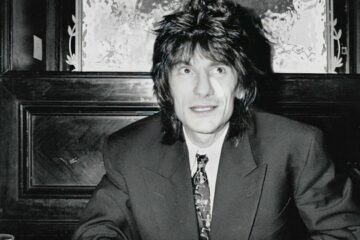From early on in the Beatles’ run, John Lennon and Paul McCartney were confident songwriters. If you look at their instant success, you could argue they had reason to be. “Love Me Do,” the first Lennon-McCartney single, hit No. 17 on the UK charts in 1962.
Soon enough, the band would start posting No. 1 hits in the UK and America. As you scan the chart-topping U.S. singles the Fab Four released, you find one thing in common: They were all Lennon-McCartney originals.
Whether John took the lead (“A Hard Day’s Night”) or Paul was behind the melody and lyric (“Can’t Buy Me Love”), the songwriting duo couldn’t be stopped by mid-1964. Obviously, that meant great things for The Beatles, but it also had an impact on the third songwriter in the band: George Harrison.
As George began writing music worthy of Beatles records, he faced stiff competition from the Lennon-McCartney alliance and little encouragement from the band’s producer (Parlophone chief George Martin). That started to wear on Harrison by the mid-’60s.
George had to work alone with little-to-no encouragement.
Practically speaking, the arrangement between John and Paul was as much as a songwriter could ask for. Whether one half of the duo contributed a few lyrics or the entire middle section of a song, they had an ace writer to turn to at all times.
George didn’t have any such partner. And, as the years went on and the No. 1 Lennon-McCartney tracks piled up, Martin had little interest in straying from the proven formula. Naturally, this frustrated George and robbed him of whatever confidence he had built.
“There were just too many limitations based upon our being together for so long,” he said in a Crawdaddy Magazine interview in 1977. “The problem was that John and Paul had written songs for so long it was difficult … and they automatically thought that theirs should be priority.”
From the stories engineer Geoff Emerick told about the band’s recording sessions, you can see how George faced pressure to hustle through any track he hoped to record.
“I had a little encouragement from time to time, but it was very little,” George said. “It was like they were doing me a favor. I didn’t have much confidence in writing songs because of that.”
George later turned to Eric Clapton when he thought his songs deserved better.
In 1968, while The Beatles were angry at one another and trying to record The White Album, the situation came to a head. Though George had penned the gorgeous “While My Guitar Gently Weeps,” his bandmates were basically ignoring the song.
To get their attention, George asked his friend Eric Clapton to come in and play lead guitar on the song. After Clapton agreed, George was able to relax in the studio and focus on the arrangement and his lead vocals. The result spoke for itself.
But even after George’s excellent showing on The White Album, he still wasn’t getting the respect he deserved from John and Paul. You can see that in the Let It Be film and, when you hear about the fight George had with John in those days, you understand what happened.
By late in 1969, George had reached a new peak as a songwriter with “Something” and “Here Comes the Sun.” At that point, no one could tell him anything in the studio — George wasn’t going to listen, anyway.



